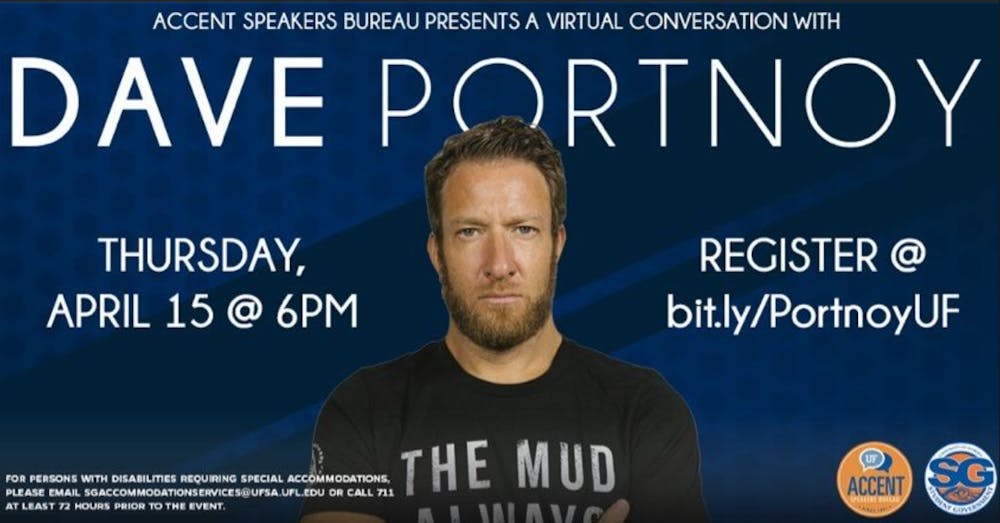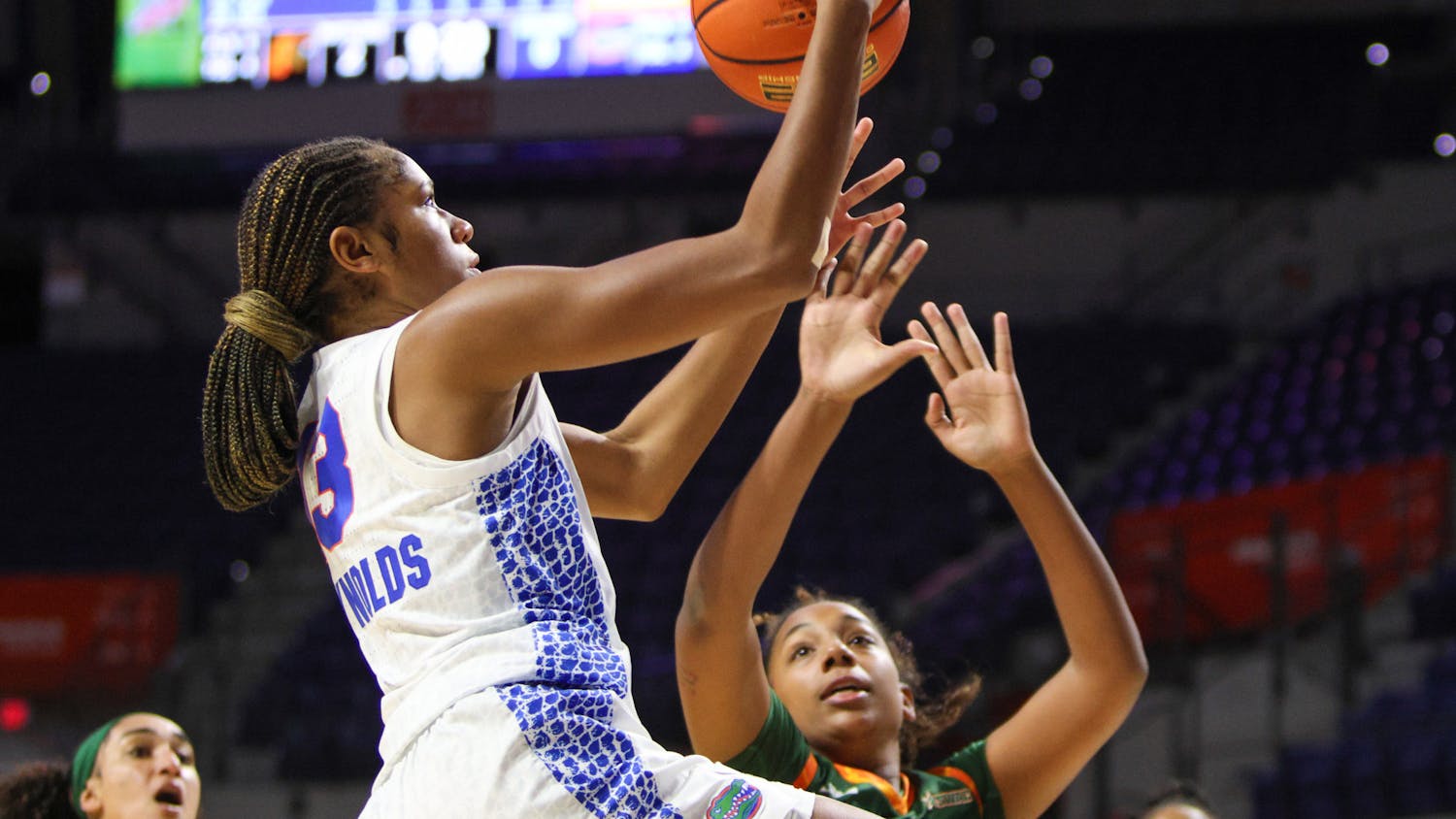Dave Portnoy built a small sports gambling newspaper in Boston into a nationally known product. And through the COVID-19 pandemic, his audience grew with pizza reviews, day trading and a small-business relief fund.
Portnoy, president and founder of Barstool Sports, spoke to UF students about his personal history and Barstool Sports’ success Thursday. He talked about the brand’s authenticity while also addressing the controversies his brand has faced over the years.
Portnoy, the last speaker in the UF Accent Speakers Bureau’s Spring lineup, joined moderator Ted Spiker, the journalism department chair, over Zoom to discuss his latest ventures.
In 2003, Portnoy founded Barstool Sports as a print publication for gambling advertisements and sports talk. The company made a major breakthrough in 2007 when a New York reader offered to develop a website for the brand, Portnoy said.
“Once you went online, it changes the whole business,” Portnoy said. “I was the right guy to take advantage of basically a lucky break.”
Barstool Sports has also expanded into numerous podcasts, blogs and social media. Portnoy’s one-bite pizza reviews of restaurants across the country appeal to foodies and casual viewers alike. As quarantine halted daily life last March, he dabbled in TikTok and day trading.
Portnoy co-hosts the BFFs podcast with TikToker Josh Richards, rounding up topics on the app’s influencers and their relationships. He also started the Barstool Fund to raise money for small businesses hurt by the pandemic, raising $37 million for 332 businesses since December.
But this image of Barstool is a shift from its rowdy roots as they branch into more sponsorships. Portnoy expects employees to be in better control of their comedy; if it’s going to be questionable, it better be funny, he said.
Spiker asked Portnoy if he had any regrets about things he’s said in the past. Portnoy was recorded saying a racial slur, and a flurry of insults toward Sam Ponder from ESPN resurfaced after the network partnered with Barstool for a talk show. Portnoy said he wished he hadn’t made those remarks.
“But I can’t apologize for things in my heart. It’s like there’s no intent to cause harm,” Portnoy said.
Alana O’Brien, a 23-year-old UF biomedical sciences Ph.D. student, said she enjoyed the pressing questions Spiker asked about Portnoy’s controversial past. She witnessed the cyberbullying of the brand toward the National Women’s Hockey League (NWHL) as Barstool fans attacked smaller Twitter accounts for criticizing the company online.
Barstool Sports CEO Erika Nardini promoted the NWHL on her platforms, which drew criticism from the league’s members and followers because of Barstool’s racist and misogynistic history. In turn, fans of the brand snapped back.
“It’s unfortunate UF gives someone like this a platform,” O’Brien said.
However, other students don’t feel Portnoy’s or his brand’s actions are as simple.
“I was surprised to see the dichotomy of how people were saying he’s 100% great and a lot of people saying he’s horrible and shouldn’t be allowed here,” Matty Kis, a 21-year-old UF biology junior, said.
Kis follows Barstool’s annual boxing events such as Rough N’ Rowdy, but the backlash Portnoy received for the Accent event is what drove him to attend. He believes having a conversation about his controversies while also talking about sports journalism and business was valuable to college-aged people.
“He really had a lot to do with his own success,” Kis said. “Without his personality and the authenticity of the reporting from Barstool, I don't think they'd have the following that they do.”
Contact Manny Rea at mrea@alligator.org. Follow him on Twitter @ReaManny.

Manny Rea is a journalism sophomore and the current health reporter for The Alligator. He worked as a copy editor in his freshman year before moving over to the Avenue in summer 2020. He likes to listen to dollar-bin records and read comics, and he is patiently waiting to go back to movies and concerts.






